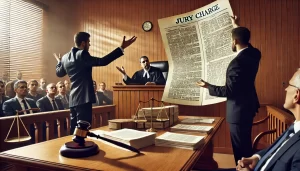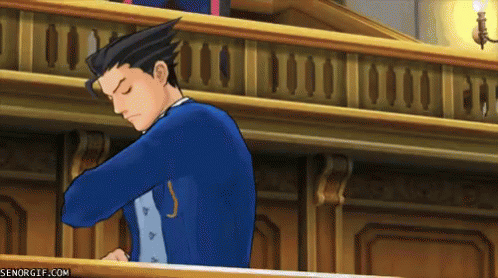Expo Group v. Purdy clarifies a point about the statutory grant of jurisdiction over injunction orders: “[M]odifying a temporary injunction is akin to granting a temporary injunction—it creates a new or amended temporary injunction from which a party may appeal; refusing to modify does not.” No. 05-24-00653-CV (Jan. 27, 2025) (mem. op.) (citation omitted).
Monthly Archives: January 2025
 While much less visible than it once was, the TCPA continues to have impact in an appropriate case. For example, in High Risk Pregnancy doctors, PLLC v. Akhmedjanova, the Fifth Court addressed whether the plaintiff, Akhmedjanova, had established a prima facie case for her claims, after concluding that the TCPA applied to the defendants’ exercise of their right of petition.
While much less visible than it once was, the TCPA continues to have impact in an appropriate case. For example, in High Risk Pregnancy doctors, PLLC v. Akhmedjanova, the Fifth Court addressed whether the plaintiff, Akhmedjanova, had established a prima facie case for her claims, after concluding that the TCPA applied to the defendants’ exercise of their right of petition.
The Court ruled against her on each such claim; for example, on her claim for invasion of privacy, the Court noted that Akhmedjanova’s complaint centered on the publication of her past physician-patient relationship, but she did not show that the defendants intruded or pried into her private affairs. No. 05-24-00413-CV, Jan. 15, 2025 (mem. op.).
 In Santander Consumer USA Inc. v. Enterprise Fin. Group, Inc., the Fifth Court addressed preservation of charge error.
In Santander Consumer USA Inc. v. Enterprise Fin. Group, Inc., the Fifth Court addressed preservation of charge error.
Specifically, the Court held that the appellant failed to object specifically to the broad form submission of Question No. 1, which asked if the appellant failed to comply with the agreement. It observed that the appellant “did not object to the submission of Question No. 1 at the charge conference or before the charge was read to the jury,” and reminded that submitting a proposed charge or jury questions pretrial is not enough to preserve a charge-error issue.
Importantly, this analysis means that “[t]he use of a global denial of objections and requests based solely on the parties’ pretrial submission of proposed jury charges does not preserve issues of charge error for appellate review.” No. 23-0770-CV (Dec. 31, 2024) (mem. op.).
 Dallas Police & Fire Pension System v. Townsend Holdings, LLC illustrates the practical problems about objecting to allegedly improper argument–objection risks highlighting the problem, while waiting risks a waiver finding:
Dallas Police & Fire Pension System v. Townsend Holdings, LLC illustrates the practical problems about objecting to allegedly improper argument–objection risks highlighting the problem, while waiting risks a waiver finding:
DPFP chose not to raise its concerns until after the jury began deliberations. DPFP’s chosen strategy risked that any error would be unpreserved if improper arguments were curable. DPFP had significant time during the five weeks of trial to consider objections and request curative action. If DPFP were concerned about provoking the ire of the jury, it could have requested admonitions outside the presence of the jury to rein in overzealous attorneys. To preserve error, DPFP should have timely objected and sought appropriate instructions from the trial court, who was in the best position to fashion the appropriate remedy.
No. 05-23-00099-CV (Dec. 17, 2024) (mem. op.).
 Also in Santander Consumer USA Inc. v. Enterprise Fin. Group, Inc., discussed yesterday about charge error, the Fifth Court addressed a preservation issue about evidence that the appellant said related to unpleaded theories of contract breach. The Court found that issue was not preserved by a series of objections to relevance, generally, that didn’t refer to the particular contract issue, or by a tender of exhibits as “rebuttal” to the objected-to-evidence:
Also in Santander Consumer USA Inc. v. Enterprise Fin. Group, Inc., discussed yesterday about charge error, the Fifth Court addressed a preservation issue about evidence that the appellant said related to unpleaded theories of contract breach. The Court found that issue was not preserved by a series of objections to relevance, generally, that didn’t refer to the particular contract issue, or by a tender of exhibits as “rebuttal” to the objected-to-evidence:
“[T]he objection made by SCUSA’s Counsel did not mention Section 17.6 and did not articulate that SCUSA objected to EFG asserting unpleaded theories of breach. This objection was insufficient to put the trial court on notice of the actual objection and, therefore, did not preserve error.”
No. 23-00770 (Dec. 31, 2024) (mem. op.).
Governor Abbott has made two appointments for the Texas Supreme Court after the recent retirement of Nathan Hecht–long serving Justice Blacklock becomes Chief, and the Governor’s general counsel becomes the newest Justice.
 The parties’ lease in Lamar Advantage Outdoor Co. v. LaCore Enterprises, LLC contained this provision, which the Fifth Court held to create a right of first refusal (as opposed to a purchase option):
The parties’ lease in Lamar Advantage Outdoor Co. v. LaCore Enterprises, LLC contained this provision, which the Fifth Court held to create a right of first refusal (as opposed to a purchase option):
If LESSOR desires to sell or otherwise transfer any Interest in the property upon which the sign is situated, LESSOR grants LESSEE an option to purchase a perpetual easement (servitude) encompassing the sign and the access, utility service and visibility rights set forth herein. LESSEE must elect to exercise this option within thirty (30) days after written notification of LESSOR’s desire to sell. LESSEE’S failure to exercise this option within said period shall be a waiver of this option. …
Following an earlier Fifth Court case about a similar clause, the Court held that because this provisision was not “limit[ed to] the right of first refusal to the first sale or transfer of the Property or contemplating waiver of the right if not utilized in conjunction with prior transactions.” No. 05-23-00210-CV (Dec. 31, 2024) (mem. op.).
In Wal-Mart Stores, Inc. v. Xerox State & Local Solutions, Inc., on remand from the Texas Supreme Court, the Fifth Court concluded that various tort claims were precluded by the economic-loss rule in the context of the particular industry involved:
It is inappropriate for the courts of Texas to disrupt the system of agreements of the different states with Xerox for protection of those states’ retailers. Nor is it appropriate for Texas’s courts to provide common-law protection for Wal-Mart when the statutes, regulations, and contracts governing the SNAP EBT program failed to do so. We conclude the economic loss rule precludes our finding Xerox had a general common-law duty to prevent Wal-Mart’s losses from the store-andforward transactions subject to Xerox’s second motion for summary judgment.
No. 05-18-01421-CV (Dec. 12, 2024) (mem. op.). LPHS represented Xerox in this appeal.
Estrada v. Boss Exotics, LLC reverses a default judgment, despite finding conscious indifference, because the alleged unliquidated damages were not supported by competent evidence: “On this record, we conclude that appellees’ counsel’s unsworn statement indicating that the balance due on the vehicle was $75,000 does not constitute evidence.”
A dissent questioned whether the majority’s conclusion about conscious indifference is consistent with an extensive line of cases from the Texas Supreme Court about the need to resolve cases on the merits. No. 05-23-00990-CV (Dec. 18, 2024).
 Janus (right) was the Roman god of dualities. Pruitt Family Living Trust v. Totus Gift Card Mgmnt also involved a duality, in the form of evidence and substantive rulings that were not consistent:
Janus (right) was the Roman god of dualities. Pruitt Family Living Trust v. Totus Gift Card Mgmnt also involved a duality, in the form of evidence and substantive rulings that were not consistent:
Through these inconsistent rulings, the trial court excluded the same evidence it presumably considered when granting TGCM’s special appearance. A trial court cannot allow one party the benefit of using authenticated evidence to support a special appearance while striking the same authenticated evidence to the detriment of the other side. Because of the trial court’s misapplication of rule 120a(3), it stripped appellants of their ability to admit any evidence challenging the special appearance. Stated differently, by striking the evidence relied on by TGCM to support their special appearance, the trial court was left with no evidence upon which it could rule, let alone grant, the special appearance. Accordingly, the trial court abused its discretion by ruling arbitrarily and without reference to any guiding rules
or legal principles.
No. 05-24-00612-CV (Dec. 27, 2024) (mem. op.).
In City of Austin v. Powell, the supreme court overhauls the general framework for resolution of a plea to the jurisdiction based on immunity, observing:
More than twenty years ago, we described the process for resolving a plea to the jurisdiction asserting immunity from suit as one that “generally mirrors that of a summary judgment.” Tex. Dep’t of Parks & Wildlife v. Miranda, 133 S.W.3d 217, 228 (Tex. 2004). We reaffirm this description but acknowledge that dispositive-pleading practice has evolved in the interim. The conceptual similarity largely reflects that the parties’ burdens will depend on the nature of the plaintiff’s claim and how the government poses its jurisdictional challenge. Just as the Texas rules now include not only traditional summary judgment but also no-evidence summary judgment and dismissal under Rule 91a, for example, pleas to the jurisdiction may involve competing evidence, the denial of any probative evidence, or the assertion that the law compels a result regardless of the evidence.
No. 22-0662 (Dec. 31, 2024). Powell does not materially revise the actual framework, but carefully reviews a number of common quotes about that framework to be sure they are consistent with modern-day procedure.
 2025 brings significant change to the Fifth Court, with J.J. Koch becoming Chief Justice, and Mike Lee, Jessica Lewis, Tina Clinton, Earl Jackson, Cynthia Barbare, and Gino Rossini joining as new Justices.
2025 brings significant change to the Fifth Court, with J.J. Koch becoming Chief Justice, and Mike Lee, Jessica Lewis, Tina Clinton, Earl Jackson, Cynthia Barbare, and Gino Rossini joining as new Justices.
